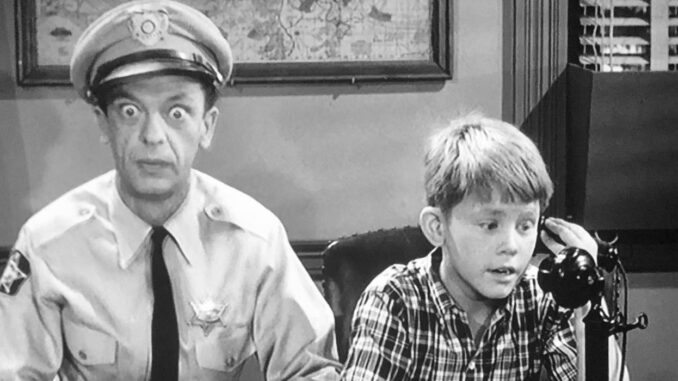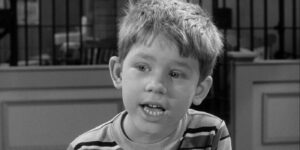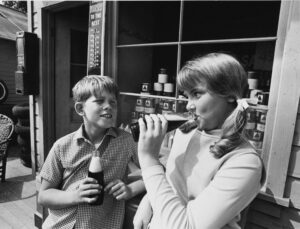
When we think of ‘The Andy Griffith Show,’ one character often stands out: Opie Taylor, played by the talented Ron Howard. A beloved child actor, Opie’s journey from the innocent boy of Season 1 to a more nuanced character in later seasons is a fascinating topic. It’s not just about a kid growing up; it’s a reflection of societal changes, familial relationships, and the innocence of childhood itself. So, what exactly changed in Opie’s characterization? Let’s dive into the evolution of Opie Taylor and explore how the show shaped this iconic character.
The Innocent Beginnings of Opie
Opie in Season 1: The Adorable Innocent
In the first season of ‘The Andy Griffith Show,’ Opie is portrayed as a sweet, innocent child who embodies the carefree spirit of youth. He engages in typical childhood activities—fishing, playing with friends, and occasionally getting into trouble. His innocent demeanor and naive questions often provide comedic relief, capturing the hearts of viewers.
The Father-Son Dynamic
Opie’s relationship with his father, Sheriff Andy Taylor, is central to the show’s charm. Season 1 showcases their bond through playful banter and heartfelt moments. Andy, portrayed by Andy Griffith, serves as both a father and a mentor, imparting life lessons that resonate throughout the series. The innocence in their interactions highlights the simplicity of rural life in Mayberry.
Shifts in Characterization: Seasons 2 and Beyond

Maturing with the Audience
As the series progressed into Seasons 2 and 3, viewers witnessed a noticeable shift in Opie’s characterization. No longer just a passive participant in his father’s adventures, Opie began to take on a more active role. This change mirrored the audience’s maturation, as many viewers were growing up alongside the young character.
Increased Complexity in Storylines
With this maturation came more complex storylines. Opie started grappling with moral dilemmas and social issues, often presented in a lighthearted manner. Whether it was standing up for a friend or learning about responsibility, these storylines helped flesh out his character, moving beyond mere innocence into a realm of wisdom and understanding.
The Role of the Community
The community of Mayberry plays a pivotal role in Opie’s development. As he interacts with various characters—like Aunt Bee, Barney Fife, and others—he absorbs different perspectives. This community influence enriches his character, showing that growth often comes from the environment surrounding us.
Opie’s Growing Independence
The Shift from Child to Individual
As the seasons continued, Opie began to demonstrate a sense of independence. He questioned authority, formed his own opinions, and even challenged his father’s views on occasion. This shift represented a natural part of growing up; it allowed viewers to see Opie as a fully realized character rather than just a child.
Lessons in Responsibility
Opie’s journey toward responsibility was depicted through various plots. For instance, when he took care of pets or participated in community events, viewers saw a character learning the importance of commitment and care. Such storylines helped mold Opie into a relatable figure for children and adults alike.
Character Depth Through Relationships

Opie and His Peers
Opie’s friendships became more pronounced as the series progressed. His interactions with friends like Arnold and his classmates added layers to his character. These relationships highlighted the challenges of growing up—peer pressure, loyalty, and the complexities of friendship—offering viewers a realistic portrayal of childhood.
The Influence of Aunt Bee
Aunt Bee, portrayed by Frances Bavier, also significantly influenced Opie’s character development. Her nurturing presence added depth to his upbringing, providing a maternal figure who balanced Andy’s parenting style. Through Aunt Bee, Opie learned about compassion, empathy, and the importance of family, further enriching his character.
Humor and Wisdom: The Balancing Act
Comedy with a Lesson
One of the show’s trademarks was its ability to blend humor with life lessons. Opie’s character often found himself in humorous situations that revealed deeper truths about life. This balance allowed the audience to enjoy a good laugh while also reflecting on meaningful messages.
The Role of Humor in Growth
As Opie matured, his humor also evolved. The witty exchanges between him and Andy shifted from childlike innocence to clever banter, showcasing his growing intellect. This transition not only provided entertainment but also illustrated how maturity can come with a sharp sense of humor.
Cultural Context and Audience Expectations
Reflecting Societal Changes
The transformation of Opie’s character can also be attributed to broader societal changes during the 1960s. As the world around them evolved, so did the characters in Mayberry. Opie’s growth paralleled societal shifts, including changing family dynamics and the importance of individuality.
Meeting Audience Expectations
As the show gained popularity, audience expectations began to shift. Viewers wanted more than just a charming small-town life; they craved depth in characters. The writers recognized this and adapted Opie’s characterization accordingly, giving him the complexity that resonated with fans.
Legacy of Opie Taylor
A Lasting Impact
Opie Taylor’s journey from a sweet child to a complex character remains a significant part of ‘The Andy Griffith Show.’ His evolution reflects not only personal growth but also the changing landscape of television and storytelling. The show’s ability to blend humor, life lessons, and relatable characters helped solidify its place in television history.
The Influence on Future Generations
Opie’s character laid the groundwork for future portrayals of young boys on television. His development inspired many writers and creators, shaping how child characters are depicted in modern shows. Opie Taylor remains a benchmark for character evolution, proving that even the simplest stories can carry profound messages.
Conclusion
In conclusion, the transformation of Opie Taylor in ‘The Andy Griffith Show’ offers a remarkable lens into the evolution of character development in television. From his innocent beginnings in Season 1 to the more complex character he became, Opie’s journey is a testament to the richness of storytelling. The show’s ability to reflect societal changes, combined with humor and heartfelt lessons, allowed Opie to resonate with audiences both then and now. As we look back at Mayberry, we see not just a small town but a reflection of the human experience, brilliantly captured through the eyes of a beloved young boy.